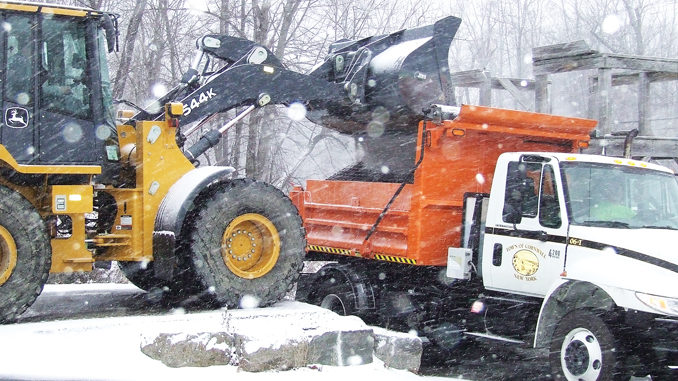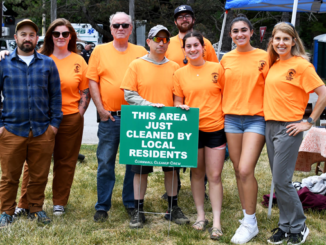
Rock salt has been used for decades to aid in the removal of snow and ice from roadways. Only within the last decade have people discovered the lasting negative impact it has on the environment. Vicky Kelly, Environmental Monitoring Program Manager with the Cary Institute, recently co-authored a report analyzing the impact road salt has on the ecosystem.
The original thought was salt is conservative and can just be washed away into streams, rivers, and seas. Further studies have proved that salt accumulates in ground water, sediment, soil, wetlands, and lakes, said Kelly.
“When it does that, it slowly makes its way into streams over a long period of time,” Kelly said. “Once it gets into ground water, it takes a really long time to flush out. Our continued use of all that salt has resulted in contamination of fresh water. Drinking water, which comes from groundwater, is salty and needs to be treated.”
Not only is creating salty water, out of freshwater, a detriment to the environment, it also has a negative impact on our health.
“The Safe Drinking Water Act says you can’t have too much sodium in drinking water,” Kelly said. “There are people who are on sodium-restricted diets, so they can’t have sodium in their water.”
Salt, in high enough concentrations, also affects organisms and the natural function of a lake or stream.
Kelly said salt levels typically spike in the winter, but the overall average is higher in the summer when organisms are most active.
Kelly said the higher levels in the summer have to do with the reservoir of salty groundwater.
“In the summer, streams run low because trees are active. They act like giant straws taking water through roots, expelling water vapor from leaves. Because they’re so thirsty, they take much of the water. Water, which falls as rain, very little of it makes its way to streams which are fed by groundwater.”
Unfortunately, people need to get to work, and there isn’t a good alternative. Kelly said there are more efficient ways to use the salt.
Municipalities can invest in better equipment which spreads salt more efficiently and doesn’t leave piles of it in the road while sitting idle. Newer plows are designed to remove snow and ice more effectively.
If municipalities don’t have the money for new equipment, there are other ways to treat roads.
While salt is used routinely due to the challenging terrain in both Cornwall and Cornwall-on-Hudson, the town’s Highway Department and the village’s Department of Public Works do take steps to reduce the amount of salt applied to roadways.
Both municipalities pretreat roads with calcium. The paste sticks to the road making it easier to clean.
Highway Superintendent Kyle Livsey said he orders 2,000 tons of salt, but in an average year doesn’t come close to using that amount. His team mixes salt with sand to stretch the life of the salt. It also allows the department to keep more salt on hand if a particular storm brings more ice.
Livsey said roads are treated at the beginning of a storm and then he holds off until the snow has passed. Each storm is different, so this strategy is practiced on a case-by-case basis.
While trying to be conservative, Livsey said his priority is to make sure the roads are safe and passable.
The village uses between 400 and 500 tons of salt in an average year. Superintendent David Halvorsen said he makes every attempt to reduce the amount of salt which hits the road, but that can be challenging because of the village’s hilly terrain.
Despite every effort to reduce the amount of salt used, the damage is already done.
“It will take a long time to see the impacts of steps taken to reduce road salt,” Kelly said. “I try to urge a certain level of patience in people. Don’t give up if we don’t see impacts right away. It could take decades.”

